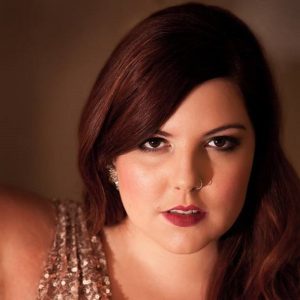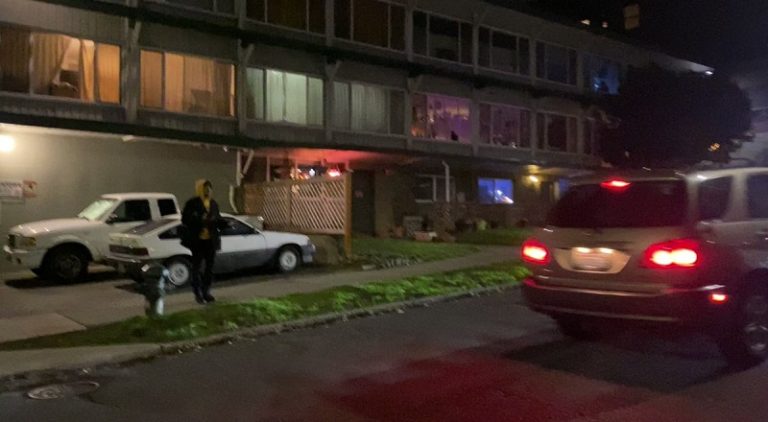
Hip Hop Vibe Staff Writer
During the summer of 2012, Seattle duo, Macklemore and Ryan Lewis released their album, The Heist, which made history. Different from what the rest of the game had to offer, Mackelmore and Ryan Lewis delivered such singles as “Same Love.” The voice on this song helped shape the record, Mary Lambert’s voice.
In 2013, “Same Love” became a breakout single and Mary Lambert was along for the ride. She performed “Same Love” with Macklemore and Ryan Lewis at the 2013 MTV Video Music Awards. Mary Lambert also performed this song earlier this year at the Grammys and she received her nomination for it.
Mary Lambert has also had solo success, releasing her EP Welcome To The Age of My Body last December. Outside of music, Mary Lambert also has her book, 500 Tips For Fat Girls, which has opened another avenue for her. Hip Hop Vibe had the chance to talk to Mary Lambert about doing the “Same Love” track with Macklemore and Ryan Lewis, her book, her experience coming out of the closet, and more.
Read the entire interview below:
Please tell our viewers and readers a little about your history in the industry as a poet and singer. Music was my first love and began at a very early age. I was five years old, writing songs to my stuffed animals. I taught myself piano and guitar around nine years old, and I just continued to pursue the artform.
More than anything, writing music served as an outlet for a lot of abuse that I was experiencing in my childhood. I discovered spoken word when I was in college, through a program called Youth Speaks Seattle, and began competitively performing slam poetry.
What made you write the hook and chorus for “Same Love” and how did the collaboration with Macklemore and Ryan Lewis come about? Through Youth Speaks Seattle, I met Hollis Wong-Wear, who sang and wrote the hook for “White Walls,” around 2008. She was so supportive of my music and poetry and was always trying to find ways to put me on. She booked me for shows and recommended me to other artists. When Ben and Ryan were working on “Same Love,” she brought my name up, and although I was virtually unknown, the duo sent me the song, and asked me to come in that night. The process of discovering, writing, and recording ‘Same Love’ happened in a matter of five hours.
I know you grew up as a lesbian in a Christian household. How did you deal with that situation and what advice would you give to other women who are in a similar situation? I didn’t have a lot of turmoil actually coming out to my family when I did. I was 17 and my parents were very supportive. The real dilemma lay in my psyche. I had shamed myself into a popular conservative Christian belief that people COULD be gay, but they didn’t need to act on it. That’s where the line, “Not crying on Sundays” came from. I actually feel like I became closer to my faith and a more ritualistic prayer when I came out, because I felt that the skewed sect of Christian community had wormed it’s way into my heart and alienated me from what true love is.
What was the basis for you to write the book 500 Tips For Fat Girls and what type of responses have you received from readers? Most spoken word poets have a chapbook that they sell at shows, and I had never compiled my poems, though I so desperately wanted to. I worked close to 50 hours a week as a waitress and bartender, so my time was sadly limited for pursuing my vision. After “Same Love,” I was able to be a full-time artist and completed my first manuscript of my collection of poetry about a year ago. My readers are very supportive and kind of my work.
Usually debates on religion and rolitics can go on forever but do you feel that music succeeds where politics and religion fails? I think pop culture has a remarkable way of changing a social/political climate, and can do so in the matter of a few years. I came out seven years ago, and the culture was very different at that time. I think revolutions can spark and succeed by channeling all avenues with an ideology.
What was it like being a major player at this year’s Grammy Awards? The Grammys were life-altering. I still have to look myself in the mirror and say “holy shit, this is YOUR LIFE”. The reminder is essential, otherwise you risk losing the whole point.
Because I tend to feel things really intensely, I cry all the time. All the time. Happy tears, sad tears, tears because I saw a baby in a cute tutu; it could be anything. During rehearsal, I repeatedly kept getting choked up because the whole performance was so moving. Madonna literally wiped the tears off of my face, and I remember thinking, “take this in. Remember this very second. Madonna is wiping tears off of your face.”
That’s crazy!! CRAZY.
What is your most personal memorable moment in music history? Although the large-scale award shows are monumental for many artists, I think the biggest impact comes from something as simple as a hug from a fan or an email. I love being able to be present with my fans and witness their own discovery of vulnerability in the same way they are present and kind to me during my own realizations. Mine are just done more publicly and through music. All of it is so human. It’s a beautiful reminder that we are all in this together.
Follow K.B. Tindal on Twitter @KBTindal.






